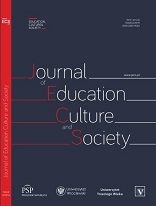Teaching listening to older second language learners: Classroom implications
Teaching listening to older second language learners: Classroom implications
Author(s): Agata SłowikSubject(s): Social Sciences, Education, Adult Education
Published by: Fundacja Pro Scientia Publica
Keywords: SLA;glottogeragogika;listening;older adult learners;lifelong learning in later life;
Summary/Abstract: Listening is often listed as the most challenging language skill that the students need to learn in the language classrooms. Therefore the awareness of listening strategies and techniques, such as bottom-up and top-down processes, specific styles of listening, or various compensatory strategies, prove to facilitate the process of learning of older individuals. Indeed, older adult learners find decoding the aural input, more challenging than the younger students. Therefore, both students’ and teachers’ subjective theories and preferences regarding listening comprehension as well as the learners’ cognitive abilities should be taken into account while designing a teaching model for this age group. The aim of this paper is, thus, to draw the conclusions regarding processes, styles and strategies involved in teaching listening to older second language learners and to juxtapose them with the already existing state of research regarding age-related hearing impairments, which will serve as the basis for future research.
Journal: The Journal of Education, Culture, and Society
- Issue Year: 8/2017
- Issue No: 2
- Page Range: 143-155
- Page Count: 13
- Language: English

